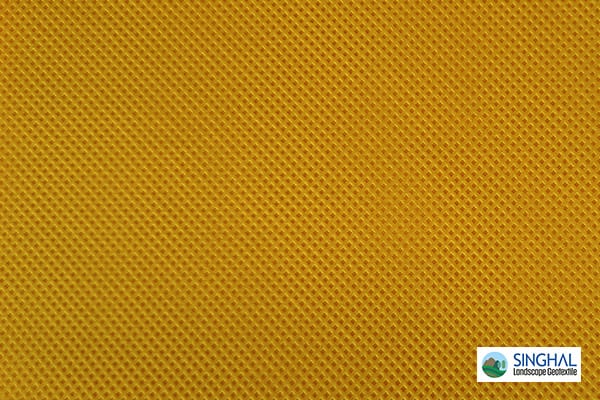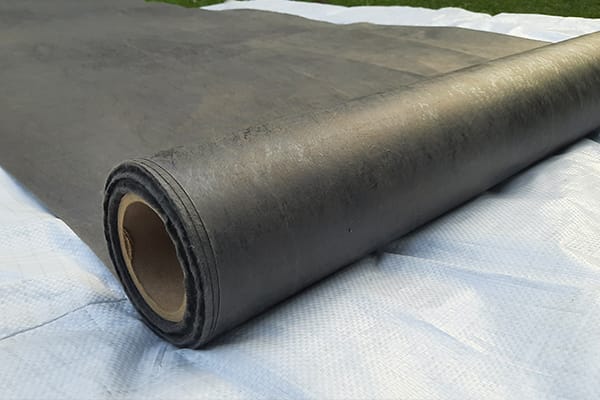Automotive Nonwoven Fabrics Manufacturer
Nonwoven fabric for Automotive is a significant aspect in modern vehicle manufacturing. It offers a unique and affordable solution for wide areas of application to automotive interiors and exteriors. This fabric is designed with qualities like high durability, lightweight in nature, and thermal insulation. The fabric attributes lead to weight reduction in vehicles which subsequently improves fuel efficiency with corresponding emission reductions. Usually, this fabric is used in headliners, carpets, trunk liners, door panels, and seat components. Besides, this fabric gives more flexibility in design, and this fabric can be customized as per the requirement.
Singhal Landscape Geotextile is a trusted manufacturer of automotive nonwoven fabrics. We offer high-quality, nonwoven fabrics for the automotive industry, following strict industry standards. Our Automotive Nonwoven fabric is widely used in automotive interior trims, headliners, carpets, insulation, and cabin air filtration, with exceptional durability, noise reduction, and lightweight features. We operate with advanced manufacturing techniques using high-quality polypropylene or polyester fibers. The company provides high-performance features and eco-friendly solutions while maintaining a commitment to enhance quality that matches OEM requirements. For premium quality Nonwoven Fabrics for Automotive, contact us Today!
Key features of Automotive Nonwoven Fabrics
Automotive Nonwoven fabric is featured with a wide range of array. The following are the primary attributes:
Lightweight: This quality of fabric helps to reduce overall vehicle weight, improving fuel efficiency and performance.
Durability: This fabric is specially designed for long-lasting performance with keep in quality, strength, and resistance with wear and tear conditions.
Acoustic Insulation: This fabric provides superior sound absorption quality, which helps to control noise in the vehicle cabin.
Thermal Insulation: This automotive nonwoven fabric helps to regulate cabin temperature by controlling heat transfer.
Flexibility & Molding Capability: The lightweight quality of this fabric is handy for shaping and molding to fit complex automotive components and parts.
Cost-Effective: It is a cost-effective option for manufacturing as compared with woven fabrics.
Eco-Friendly Options: This fabric can be recycled, and biodegradable fiber versions that support environmental sustainability.
Water & Chemical Resistance: This fabric can withstand moisture, oils, and chemical conditions.
Aesthetic Variety: This fabric is customizable in color, texture, and finish to match interior design.
Breathability: The Breathability of this fabric allows airflow where needed and keeps performing without compromising the quality.
Common Applications
Headliners: This fabric is used in vehicles as the inner roof lining for the purpose it sound insulation.
Carpets & Floor Insulation: This fabric offers durability, comfort, and noise reduction to the vehicles.
Trunk Liners: This fabric is Lightweight in nature and perfectly resistant to wear, and it is a great option for protecting the trunk area.
Door Panels: These fabrics’ premium texture adds value to the vehicle’s interior and helps with sound and thermal insulation.
Seat Padding & Upholstery Backing: Automotive nonwoven fabric gives comfort, structure, and breathability to the seating arrangement of a vehicle.
Engine Bay Insulation: This fabric can help to reduce the vehicle’s sound and heat.
Wheel Arch Liners: This fabric is a great agent to protect the vehicle against dirt, debris, and road noise.
Cabin Air Filtration: Premium quality nonwoven fabric is used in the air filtration system to filter the dust and allergens.
Hood Insulation Pads: This fabric is used in vehicles’ hood insulation pads, which helps to control engine noise and protect from extreme heat.
Key Benefits of Nonwoven Fabrics For Automotive
Weight Reduction: The Lightweight quality of this fabric contributes to improved vehicle fuel efficiency and helps to reduce emissions.
Cost Efficiency: These fabrics’ versatile applications and qualities help to reduce production costs compared with traditional textiles.
Design Flexibility: This fabric is lightweight and easy to handle and can be customized in a wide range of shapes, textures, and colors compatible with vehicle interior design.
Enhanced Comfort: Automotive Nonwoven fabric possesses exceptional qualities that help noise reduction, cushioning, and insulation in vehicles for a better driving experience.
Improved Durability: Nonwoven fabrics demonstrate superb durability over time because they withstand wear and abrasion and natural elements.
Eco-Friendly Options: This fabric can be recycled and produced from sustainable fibers.
Quick Manufacturing: Automotive Nonwoven fabric can help to fast production cycles, and make suitable for mass automotive manufacturing process.
Functional Versatility: This fabric has versatile qualities and is applied in a wide range of equipment and parts of vehicles, both interior and exterior.
Moisture & Chemical Resistance: This fabric protects vehicle components from spills, humidity, and toxication.
Low Maintenance: The qualities of nonwoven fabric make it easy to clean and maintain. This helps to increase the overall life of vehicle interiors.
FAQs About Nonwoven Fabrics For Automotive
Automotive Nonwoven fabric is made by bonding fibers together mechanically, chemically, or through thermal processes. The fabric exhibits numerous advantageous properties which make it perfect for acting as a sound and vibration blocker and insulation material and filtration system.
Nonwoven fabric possesses sound, vibration, and heat absorption properties, and its premium quality texture and breathability give comfort to commuters.
Nonwoven fabrics’ qualities help to manufacture the vehicles with low weight, helps to improve fuel efficiency, and helps to lower emission.
Nonwoven fabric used in automobiles exists with built-in flame-retardant functions to improve safety features.
Yes, automotive nonwoven fabric can be customized according to the automotive interior or exterior components.
Automotive nonwoven fabric is more affordable than woven fabrics. Its qualities, such as being lightweight and easy to handle, offer a cost-effective option for automotive manufacturing.
Specification of Nonwoven Fabrics For Automotive
Weight (GSM):
- 30–40 GSM: Light nonwovens used for applications like disposable protective covers and liners.
- 40–100 GSM: Medium-weight fabrics often used in interior trims, headliners, and filter media.
- 100–200 GSM: Heavier nonwovens used for carpets, sound insulation, and thermal barriers.
Colour
- Gray & Custom as per requirement
Width
- 1.6, 3.2 or as per request
Length
- as per requirement
Packaging Type
- Roll From







